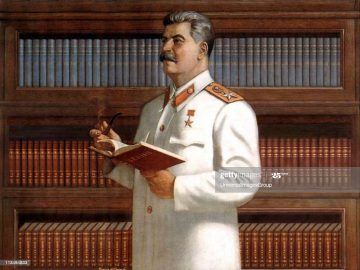
Benjamin Ramm in the BBC:
Poetry is an art of refinement, synonymous with delicacy and sensitivity. It seems counterintuitive that it might also be a celebration of brutality, and the art form beloved of tyrants. But from classical antiquity to modernity, dictators have been inspired to write verse – seeking solace, intimacy, or glory. Their work informs us about the nature of power, the abiding appeal of poetry, and the perils of artistic interpretation.
The archetype of the poet-tyrant is Roman emperor Nero (37-68 CE), the vain, self-pitying exhibitionist whose debased rule mirrored his deficient art. Nero’s historiographers, Tacitus and Suetonius, suggest that Rome was as tormented by his poetry as by his policies. Derision
is a satisfying form of critical revenge, but these accounts raise a troubling question: would the tyrant’s crimes be mitigated were his art deemed to have merit; and conversely, can we judge fairly the quality of a tyrant’s poetry?
More here.
